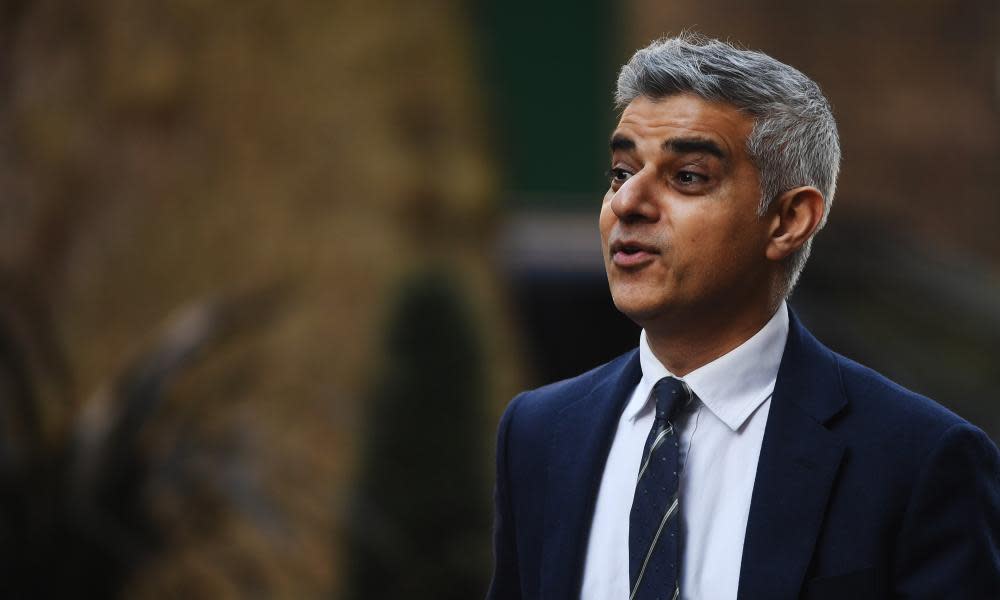Calls mount for public inquiry into UK BAME Covid-19 death rate

Ministers are under pressure to hold a public inquiry after an official report confirmed that people from black, Asian and minority ethnic groups are dying disproportionately from Covid-19.
Political leaders, medical groups and trade unions voiced deep frustration and anger after the government failed to set out any concrete steps to end the ongoing “scandal”.
The government-commissioned Public Health England (PHE) investigation found that people of Bangladeshi background in England are twice as likely as white Britons to die if they contract Covid-19, and other BAME groups face an increased risk of up to 50%.
Related: Key findings from Public Health England's report on Covid-19 deaths
However, PHE was criticised for simply restating the increased mortality highlighted by other research without explaining the reasons for the stark disparity, or making recommendations to tackle it. The British Medical Association (BMA), which represents Britain’s doctors, described it as “a missed opportunity” to instigate urgent action.
Sadiq Khan, the mayor of London, demanded a full-blown public inquiry, with ministers committed to implementing its conclusions. “This report alone is not nearly enough. We need to know now why the virus disproportionately impacts these communities and crucially, what is being done to stop it,” he said.
“The government needs to also review the impacts of their policies that have led to a hostile environment and measures like [migrants left with] ‘no recourse to public funds’.”
Dr Chaand Nagpaul, the BMA’s council chair, voiced disquiet that two months after it first called for an inquiry into the high death rate among BAME healthcare workers, in a Guardian interview, nothing had moved forward.
“It is a statistical analysis, which while important, gets us no closer towards taking action that avoids harm to BAME communities. The BMA and the wider community were hoping for a clear action plan to tackle the issues, not a reiteration of what we already know,” said Nagpaul. He lamented the report’s lack of practical guidance on how to better protect people of BAME origin.
“More specifically, the report fails to mention the staggering higher proportion of BAME healthcare workers who have tragically died from Covid-19 – with more than 90% of doctors being from BAME backgrounds,” Nagpaul added, and he also criticised PHE’s report for not properly considering the occupations of BAME victims, exposure to the virus and availability of personal protective equipment (PPE) as risk factors.
The greater vulnerability of people of colour to Covid-19 has been starkly illustrated in the death toll of NHS staff. About six in ten of the more than 200 who have died during the pandemic, including the first dozen doctors, were from BAME backgrounds, according to a Guardian analysis.
At the daily Downing Street press conference on Tuesday, the health secretary, Matt Hancock, used his opening remarks to highlight the PHE report and explicitly link it to the unrest in the US caused by the death of George Floyd, an unarmed black man, at the hands of white police. But he offered no solutions to reduce the deaths of BAME people.
“This is a particularly timely publication, because right across the world, people are angry about racial injustice,” he said. “And I get that. Black lives matter. And I want to say this to everyone who works in the NHS and in social care: I value the contribution that you make, everybody equally.”
However, under repeated questioning, Hancock did not outline any new policies in these areas and, asked how people from BAME backgrounds could protect themselves, he advised that they “stringently follow the social distancing guides”.
Responding to criticism about the lack of recommendations, he said the equalities minister, Kemi Badenoch, had been charged with seeing “what further could be done”.
Rehana Azam, the national secretary of the GMB union, backed Khan’s call for a public inquiry. “It’s a scandal that we’ve seen so many deaths of people from a BAME background at a time when the government still haven’t got a handle on the testing and PPE that are vital to keep NHS staff safe,” she said. Azam urged Hancock to set out “a credible plan” to protect BAME workers who “have made a disproportionate sacrifice during this pandemic”.
Operation Black Vote (OBV), which has called for a Covid-19 race equality strategy across Whitehall to address inequalities highlighted by the pandemic, said it was time for urgent action “to fundamentally rebuild those areas of society that have clearly exacerbated the tragic loss of life BAME communities have faced”.
Lord Simon Woolley, director of OBV and chair of Downing Street’s advisory board for the Race Disparity Unit, said coronavirus “does expose and amplify areas of life that are deeply racialised such as low pay, zero hour contracts, overcrowded housing, and inequality in health”.
Rebecca Hilsenrath, chief executive of the Equality and Human Rights Commission, said that “only a comprehensive race equality strategy will address these issues. Now is a once in a generation opportunity for government to deliver one.”
NHS trusts in England are examining ways of reducing the risk of their BAME staff becoming infected. They are being risk-assessed and, in some cases, are being offered roles away from their usual frontline duties. Gill Walton, the chief executive of the Royal College of Midwives, called for clearer guidance on how to shield staff.
People from poorer backgrounds are also much more likely to die, PHE found. The British Red Cross and Joseph Rowntree Foundation both called for a new governmental strategy to tackle deep-seated health inequalities.

 Yahoo News
Yahoo News 
